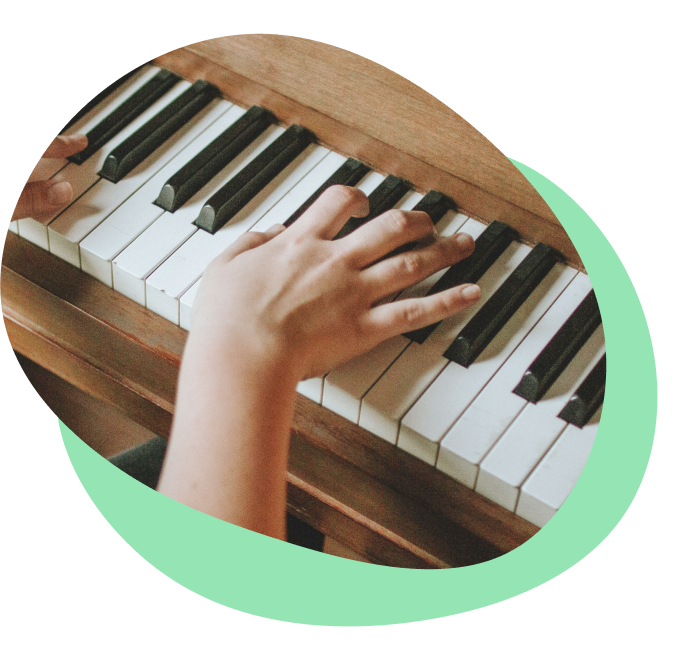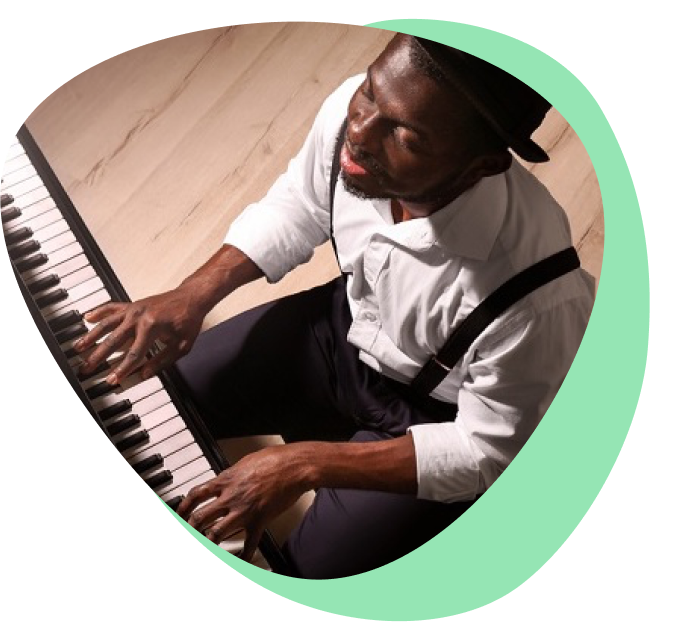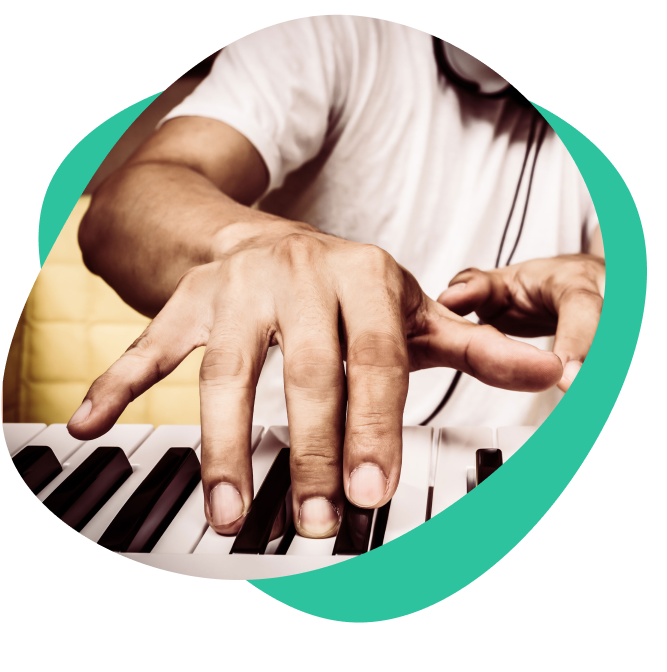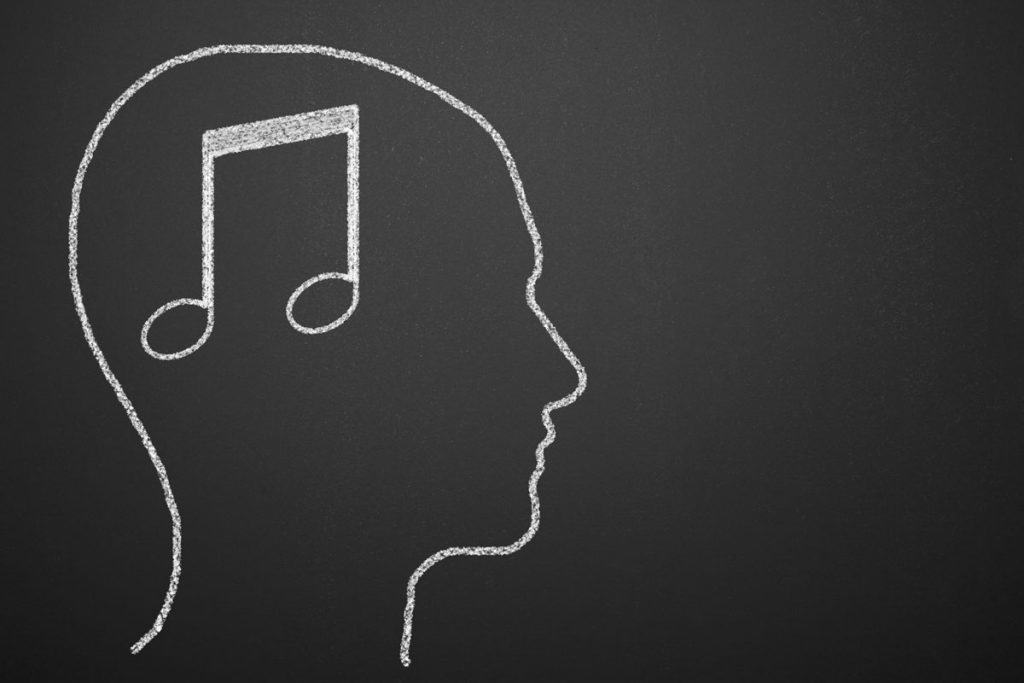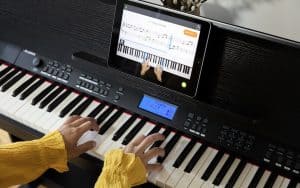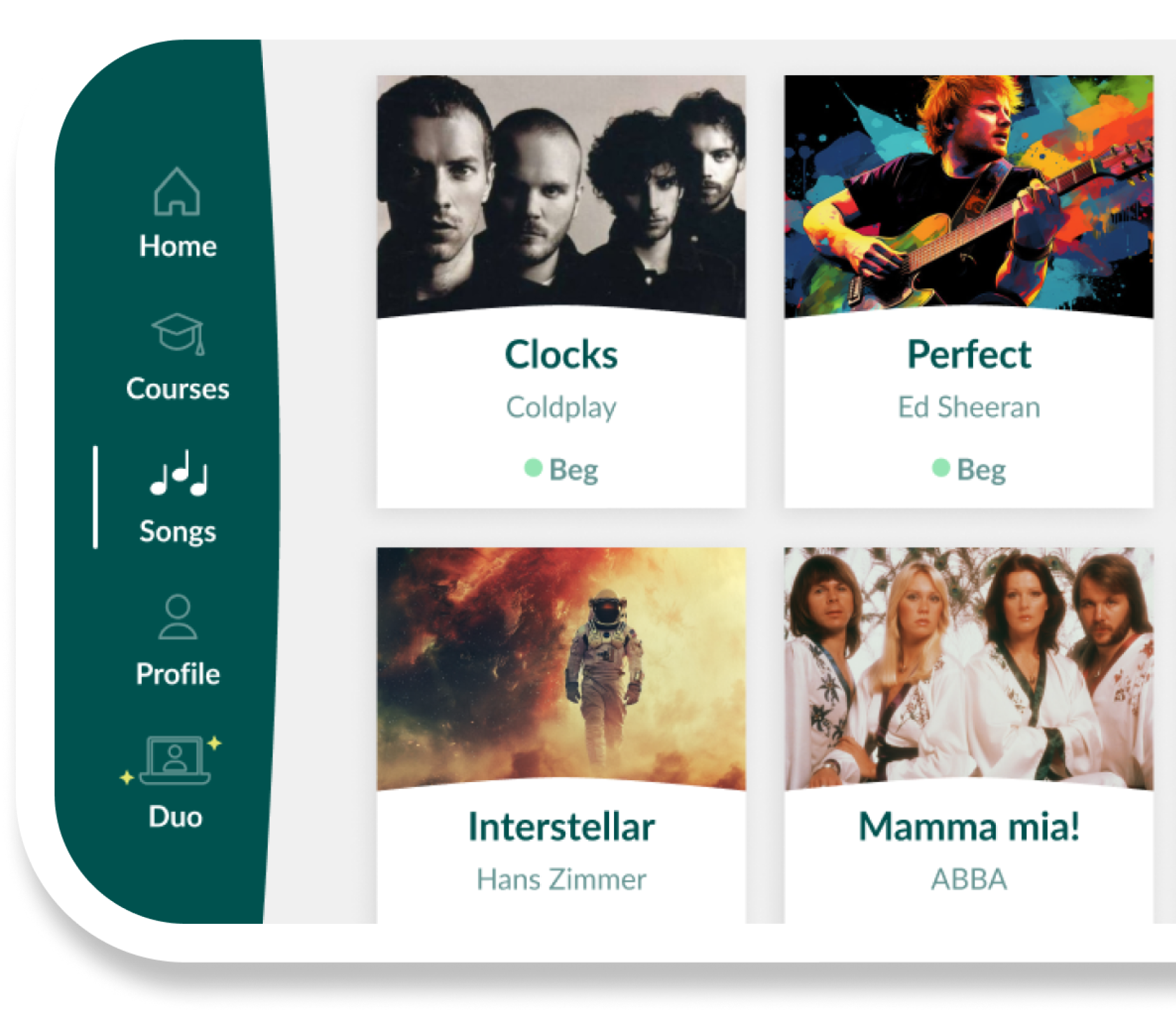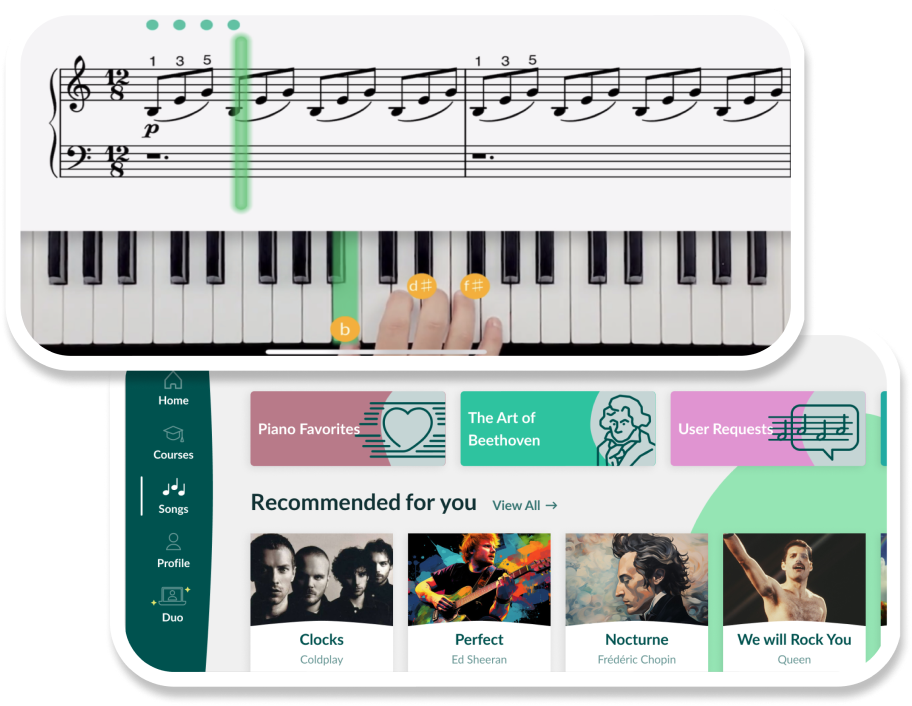The many benefits of piano playing for the brain impact all aspects of life. Music has been part of human culture for thousands of years. The oldest instruments to be discovered date back 40,000 years. Music is central to our life because of its unique, positive effects on the individual and the group. You may be learning the piano for fun but read on and you will discover the bonus features you are receiving!
Check out our other article: Why Learn to play Piano? Benefits of Music Education
The benefits of playing piano for the brain fall into three categories:
- Physical changes in the brain
- Greater emotional intelligence
- Enhanced well-being
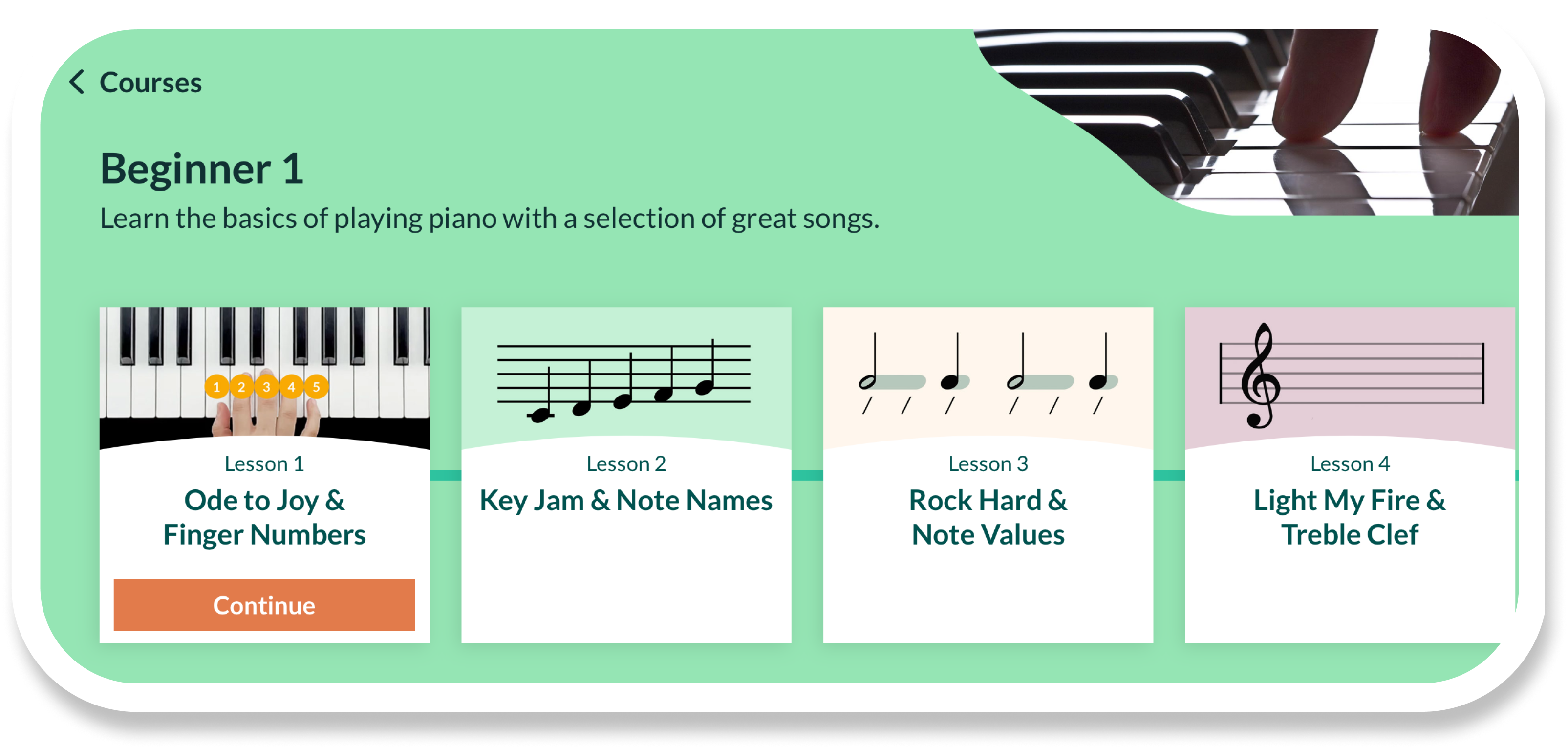
How does piano playing affect the brain?
Physical changes in the brain
Positive changes in the power and structure of the brain have been observed after as little as 5 months regular playing at a beginner level. These positive effects can be observed even when learning later in life as a retirement hobby.
Learning to play an instrument increases motor control, listening, memory (especially of audio information). The benefits extend beyond the activity of playing the piano into your everyday lives. They impact ability to plan, coordination, language skills, attention span and alertness.
If you are feeling inspired, “We Will Rock You” is a great first song for coordinating the left and right hand. To improve this aspect of piano practice, follow our tips to improve your hands-coordination.
“Learning to play a musical instrument has definite benefits and can increase IQ by seven points, in both children and adults.” Lutz Jäncke, psychologist at the University of Zurich, (The Telegraph 27th October 2009).
Practicing and mastering a challenging piece requires dedication and sustained effort. This means playing the piano also supports increased self-discipline and planning. Once a goal has been achieved self-belief and self-confidence also increase.
Why not take this opportunity to look through Skoove and find a piece you are very eager to learn? It may be a long-term goal and you may have to learn some other pieces on the way there. However, having this aim will bring focus to your practicing.
What do you think of “Valse D’Amelie”?
Greater emotional intelligence
Emotional intelligence describes the ability to recognize emotions in yourself and others and use them to guide thinking. Listening deeply is a natural and essential part of learning to play music. This listening also means you become more attuned to subtle changes in tone of voice during conversation. This awareness increases empathy and impacts all conversations with colleagues, friends and family.
“Yesterday” is a touching song about someone moving though the emotions of a break up.
Enhanced well-being
Being able to sit at the piano and express yourself, blocking out the rest of the world for a moment is one of the greatest benefits to personal well-being.
Why not immerse yourself in this song by Enya?
Playing the piano occupies so much of the brain that it often serves as a welcome distraction from worries. “Musette” is an example of an intricate and cheerful composition. Learning it is a perfect way to silence the buzzing mind. Playing this piece, you will also experience the satisfaction of muscle memory. The sensation of your fingers being in perfect control.
Playing a piece you love takes you into a flow state. This is when you become completely absorbed in what you are doing, losing any sense of space and time. This state is linked to good mental health, well-being and it increases levels of life satisfaction and emotional resilience.
Music offers enjoyment, self-expression, achievement, escape, and all these other benefits. It is so much more than a hobby, it is an investment in your well-being and personal growth.
Feels like you should start playing the piano? Check out our Ultimate Guide To Playing The Piano.
Try out your free trial of Skoove today!
Author of this blog post:

Roberta Wolff started piano lessons at the age of five and is still enjoying learning! Currently, she teaches piano pedagogy and performance pedagogy at post graduate level in the UK. Her other work includes running a private teaching practice for students of all ages and abilities and creating learning and practice resources. Roberta loves writing as a means to supporting others on their piano journey.




